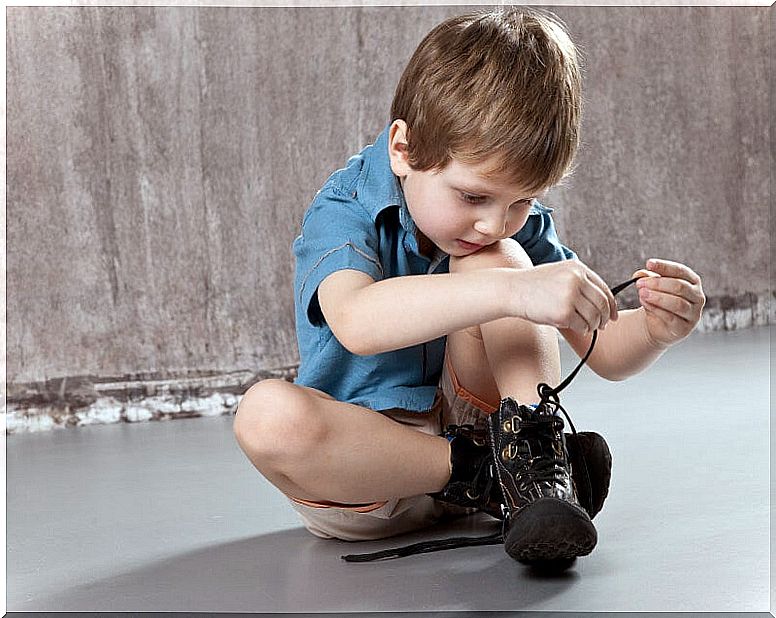5 Keys To Teach Your Children Not To Give Up

The human being has the natural instinct to self-fulfillment, to surpass himself, to set goals and work to achieve them. This is the way we manage to evolve and grow personally. However, the path is not always easy and multiple obstacles may appear that lead us to want to throw in the towel. That is why you have to teach your children not to give up, so that they achieve happiness and their own definition of success despite the challenges and challenges.
If we want a minor to persevere in any task (a school activity, a cognitive exercise, a sports habit) we have to arm it with self-esteem and self-confidence. In this regard, overprotection can make the child feel helpless and unable to achieve goals on their own. However, overly authoritarian parenting can give you the fear of making mistakes, and this can also lead you to give up almost before you start.
Thus, there are several aspects that must be worked on from childhood to help young people reach their full potential. We see them below.

The will
The will is the ability that allows a person to decide what he wants and order his behavior in order to achieve it. It is closely related to motivation and it is the main engine that drives us to continue despite the stones on the road.
On a daily basis, many situations can arise that require the will of minors: getting up early to go to school, going to their extracurricular activity instead of staying playing, studying the necessary hours despite laziness or reluctance … these moments when they have to be able to remember why it is worth going against their immediate wishes.
That is, they have to manage to focus their attention on the long-term consequences. For example, going to school and studying will allow them to train and have a profession in the future; And the after-school class can help them exercise their body, feel healthier, and have a good time socializing with their classmates.
The effort
Even if the child is clear about the long-term goal and has the will to do it, he needs to know that reaching his goal will probably require effort. This can be of a very diverse nature: exerting yourself physically, acquiring new knowledge, overcoming fears … In any case, you will have to get out of your comfort zone and this can scare you and lead you to give up. Thus, it is important to remind him that the effort will allow him to improve and will make him feel proud of having managed to improve himself.
The perseverance
We all wish that our objectives could be met in a short time and with minimal effort. A desire that in minors is more pressing, since their patience and impulse control are less developed.
However, if you want to teach your children not to give up, you have to help them persevere. To do this, you can show them how to break the goal down into smaller, more affordable subtasks and reward them for each progress they make. This recognition will help them to continue in time until they reach the final goal.
Learn from mistakes
Perfectionism is one of the qualities that can lead children to give up early. And it is that those minors who possess this trait usually perceive the error as a failure. So when they fail, they become frustrated and feel incapable and incompetent. Remind your child that no person is perfect, that we all fail, and that mistake is one of the most important parts of the journey. This will make it easier for you to move on.
Resilience

Unfortunately, even if children do everything properly, they will not always get the expected results. And it is in these moments when you have to teach your children to apply resilience; that is, you must teach them to emerge stronger from that adverse circumstance.
Failing an exam can be the impetus to acquire better study skills; And not being accepted into a group of friends can help you decide what kind of people you really want to have around you. Each obstacle can provide important learning that takes us to a better place.
Teaching your children not to give up brings them closer to happiness
We usually see constancy and perseverance as qualities necessary to obtain good academic performance. But beyond this, teaching your children not to give up will provide them with a valuable life lesson. Not only will it make them more likely to be successful in whatever they set out to do, but, above all, it will give them confidence in themselves and in their abilities. And this, without a doubt, will make them happier people.










